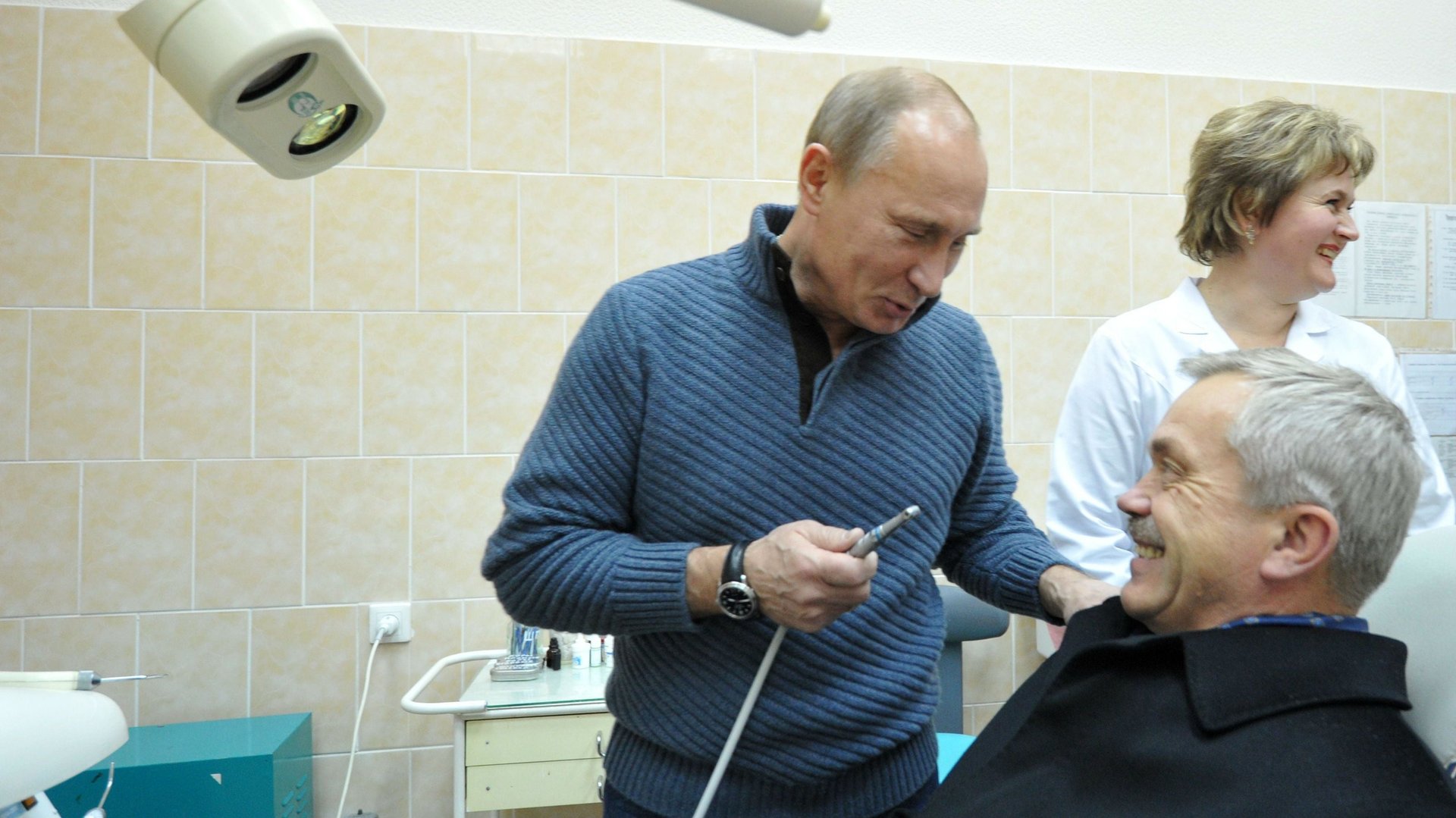Vladimir Putin has no regrets, says God wanted his life to be perfect
For a US ally, Italy is really quite friendly with Russia. Diplomatically, the two countries have what the Italian ministry of foreign affairs refers to as “privileged relations.” Economically, their ties are even stronger: Russia is Italy’s third-largest trade partner. This is perhaps why Russian president Vladimir Putin was so generous with his time when, on June 6, he sat for a two-hour-long interview with the Italian newspaper Corriere della Sera.


For a US ally, Italy is really quite friendly with Russia. Diplomatically, the two countries have what the Italian ministry of foreign affairs refers to as “privileged relations.” Economically, their ties are even stronger: Russia is Italy’s third-largest trade partner. This is perhaps why Russian president Vladimir Putin was so generous with his time when, on June 6, he sat for a two-hour-long interview with the Italian newspaper Corriere della Sera.
As one might expect from a power politician who also handles tigers (paywall), Putin did not shy away from tough questions—and to all of them, he offered tough answers—many of them aiming to set the record straight over issues that are commonly seen as coming down to his, or Russia’s, responsibility.
Here are some of Putin’s most remarkable comments—though the entire interview really deserves a read.
On the deteriorating relationships between Europe and Russia, Putin is clear.
First, I firmly believe that Russia was not responsible for the deterioration in relations between our country and the EU states. This was not our choice; it was dictated to us by our partners. It was not we who introduced restrictions on trade and economic activities. Rather, we were the target and we had to respond with retaliatory, protective measures.
Putin considers Russia to be victim of a discriminatory approach to territorial unions.
It is all right when integration takes place in Europe, but if we do the same in the territory of the former Soviet Union, they try to explain it by Russia’s desire to restore an empire. I don’t understand the reasons for such an approach.
Are NATO’s countries right to feel threatened by Russia? Again, a clear answer:
Russia does not speak with anyone in a contentious tone, and in such matters, to quote a political figure from the past, Otto von Bismarck, it is not discussions but the potential that counts.
What does the actual potential show? US military spending is higher than that of all countries in the world taken together.
[…]
Let me tell you something—there is no need to fear Russia. The world has changed so drastically that people with some common sense cannot even imagine such a large-scale military conflict today. We have other things to think about, I assure you.
Asked why it’s ”so difficult to be part of the opposition in Russia,” he had this to say.
What is so difficult about it? If the opposition proves that it can tackle the challenges faced by a district, a region or the whole country, then, I think, people will always notice it.
He has an easy fix to address the lack of opposition coverage on Russia’s main TV channels.
I think if they have something interesting to say, they will be interviewed more often.
Asked about his biggest regret in life, about what mistake he would not repeat, he offered this gem of a reply.
I will be quite frank with you. I cannot recollect anything of the kind. Evidently, God built my life so that I would have nothing to regret.
Note: the last line isn’t from the newspaper’s translation of the interview but from the original Italian version, as the two differed.